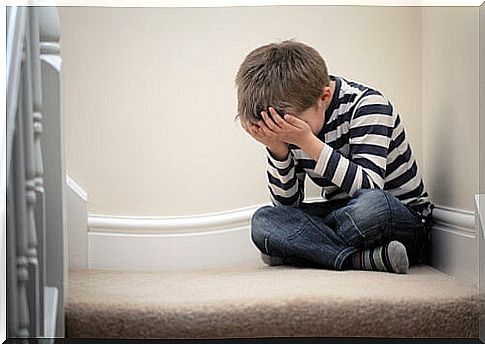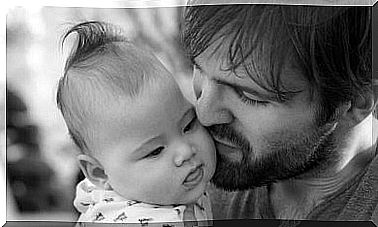How To Fight Childhood Anxiety

The common sense is that children are always happy because they “have nothing to worry about”. This is not true. Some statistics reveal that up to 20% of children can suffer from some form of childhood anxiety.
What Causes Children’s Anxiety?
Anxiety can be of different types and have different causes. Knowing them can be of great benefit to adults. The people who live with the child are essential to provide the necessary tools to correctly channel the emotions.
The causes of childhood anxiety depend on the child’s age. However, it is possible to identify different common reasons that appear before adolescence:
- Physical or psychological abuse.
- Conflicts between parents, which causes stress.
- Sudden abandonment by one of the parents.
- Traumatic events of any kind.
- Economic crisis in the family.
- Excessive responsibilities for the child’s age.
- Important changes in the child’s daily life, such as moving house, the birth of new siblings or the death of close family members or loved ones.
- Absence of routine and order. This includes constant changes in diet and sleeping hours.

- Need to contact a parent.
- Uncomfortable situations at school that the child cannot talk about.
- Absence of clearly identifiable norms or limits for the child.
- Absence of physical activity.
- Excessive consumption of sugar.
- Excessive tiredness or exhaustion due to various daily activities.
- Fear.
- Lack of confidence or self-esteem.
- Anxiety about separation from parents.
Parents or caregivers have a responsibility to identify what can trigger childhood anxiety and try to find a solution.
Some measures that can control childhood anxiety
1.- Avoid guilt
It is common that when a child has anxiety, the parents also feel anxiety about it. It sounds like a tongue twister, but it explains quite well how some parents often feel guilty about their children’s discomfort.
Guilt doesn’t help at all and so the ideal is to leave it aside. A parent who acts out of guilt can make bad decisions. At this point, it’s good to differentiate between responsibility and culpability and start taking the necessary steps.
2.- Chat
It may seem like obvious advice. But not all parents apply it. It is necessary to let the child vent and listen carefully to what he is feeling.
At this point, it is important not to force the child to speak, as this can have the opposite effect of what you want to achieve. To encourage dialogue, do not lecture or have long conversations that try to explain what to do and what not to do. The important thing is to establish a bond of trust so that the child can express himself.
3.- Set an example
Children learn to deal with emotions and cope with problems based on the way their parents do. They must act as role models. They should act in stressful situations, for example, in the way they want their children to learn.
4.- The diet
Excessive sugar consumption can change children’s behavior. They usually have a lot of energy already. If you give them more sugar than their bodies can handle, they’ll get upset.
Also, children probably won’t have a space available to burn all that energy.

5.- Require what is necessary
Parents must know that their children are not perfect. And, most importantly, let them know they are loved, no matter what mistakes they make.
Unreasonable demands can create a lot of stress on children. A typical case is grades at school. This can also happen with sports. Children who feel they need to be perfect or the best in the class may end up feeling anxious.
6.- Love
How to provide resources for children to face stressful or anxiety-producing situations? For a person to be able to face these situations, he must feel that he can. This is closely linked to self-esteem.
For a child to be sure of himself, he must feel that his parents’ love is unconditional. Affection cannot be subject to how she behaves or the achievements she obtains.
This includes showing affection at all times, spending time together and letting children know they are valued. In other words, always listen and support!









